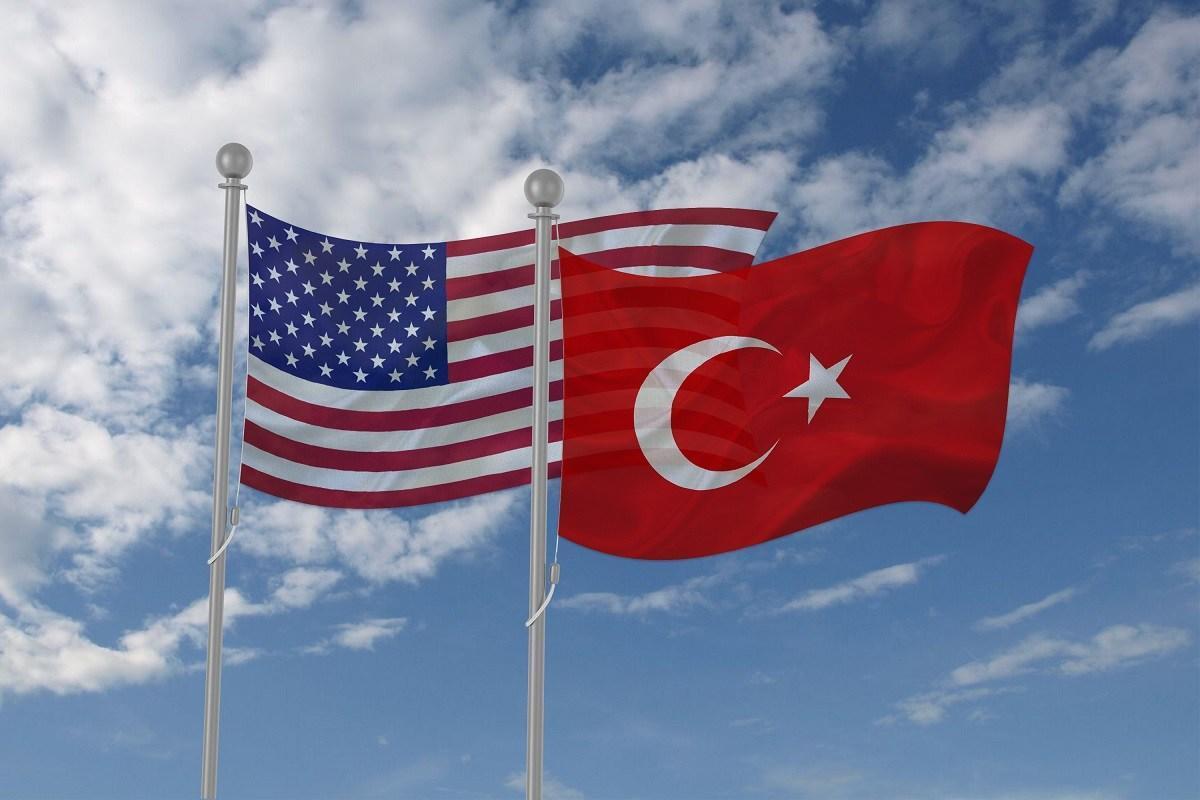
The United States has begun proceeding non-immigrant visa applications in Turkey on a limited basis, in a sign of putting an end to a month-long measure just two days before Prime Minister Binali Yıldırım’s scheduled meeting with U.S. Vice President Mike Pence.
“We observe that our efforts have yielded positive results,” sources from the Turkish Foreign Ministry told reporters on Nov 6, signaling that Turkey could now take a similar measure to grant visa facilitation to US nationals.
The step to prevent visa services in Turkey came after the arrest of Metin Topuz, a local employee at the U.S. Consulate in Istanbul on terror charges and over alleged links to the movement of U.S.-based Islamic preacher Fethullah Gülen, believed to have been behind the July 2016 coup attempt. Turkey retaliated against the move in kind, canceling e-visas and stopping the issuing visas on its borders to US nationals.
The U.S. Embassy in Ankara also released a statement on the re-opening of limited visa services, confirming that it has "received assurances" from the Turkish government on future investigations.
“We have received initial high-level assurances from the Government of Turkey that there are no additional local employees of our Mission in Turkey under investigation. We have also received initial assurances from the Government of Turkey that our local staff will not be detained or arrested for performing their official duties and that Turkish authorities will inform the U.S. government in advance if the Government of Turkey intends to detain or arrest a member of our local staff in the future,” the statement read.
"Based on these preliminary assurances, we believe the security posture has improved sufficiently to allow for the resumption of the limited visa services in Turkey. We continue to have serious concerns about the existing cases against U.S. citizens who have been arrested under the state of emergency. U.S. officials will continue to engage with their Turkish counterparts to seek a satisfactory resolution of these cases," it added.
Statement from the U.S. Mission to Turkey on Re-opening of Limited #Visa Services in #Turkey. More info here: https://t.co/MFLPYEofnP pic.twitter.com/UY9sX5Ioq9
— US Embassy Turkey (@USEmbassyTurkey) 6 Kasım 2017
Ahead of Yıldırım’s visit, Foreign Minister Mevlüt Çavuşoğlu and U.S. Secretary of State Rex Tillerson held two separate phone calls on Nov. 3 and Nov. 5, discussing the agenda of the Yıldırım-Pence meeting and trying to narrow differences in the visa crisis and other issues.
The U.S. has been demanding “quality information” on the arrest of its local employees and whether there are ongoing probes against any others. It is also concerned about the arrest of U.S. pastor Andrew Brunson, in jail for over one year over alleged links with the Gülen movement.
Three ministers to accompany Yıldırım
Prime Minister Yıldırım will be accompanied in Washington by Deputy Prime Minister Mehmet Şimşek, Foreign Minister Mevlüt Çavuşoğlu and Energy Minister Berat Albayrak.
After the meeting with Pence on Nov. 8, Yıldırım and his delegation will meet opinion-makers in Washington and New York, representatives of the Turkish community, and senior figures from the Muslim and Jewish communities, the media, investors and businesspeople, sources added.
“The visit of our prime minister will constitute an important opportunity for highlighting Turkey’s economics and trade potential and for giving fundamental messages about our foreign policy, as well the role it plays in its region and in the world,” Prime Ministry sources told the Turkish media on Nov. 6.
Yıldırım and his team will return to Turkey on Nov 10.
Heavy issues
The issues that Yıldırım and Pence will discuss will include the bilateral political, economic and military relationship, as well as regional developments in Syria and Iraq. Both Turkey and the U.S. opposed the Iraqi Kurdistan Regional Government’s (KRG) bid to declare independence in September.
One top issue between the two leaders will be Turkey’s demand to extradite the Pennsylvania-based Gülen, who has been in self-exile in the U.S. since late 1990s. Turkey regards Gülen as the head of the Fethullah Gülen Fethullahist Terror Organization (FETÖ), which mastermind last year’s coup attempt, and officially applied for his extradition to Turkey. The U.S. has so far not responded positively to the extradition demand, stressing that the issue falls within the jurisdiction of federal courts.
Ankara emphasizes that Gülen’s network runs hundreds of charter schools in the U.S. and generates around half a billion dollars in revenue to sponsor FETÖ’s activities around the world.
Row over US support to YPG
Prime Minister Yıldırım will also bring the recent developments in Syria to the agenda, particularly the U.S.’s ongoing military support to the People’s Protection Units (YPG), a group Turkish considers a terrorist organization directly linked to the outlawed Kurdistan Workers’ Party (PKK).
The U.S. presents its cooperation with the YPG as a tactical alliance because the group has been actively fighting against the Islamic State of Iraq and the Levant (ISIL) since 2015, trying to assure Ankara that weapons given to the YPG will not be used against Turkey.